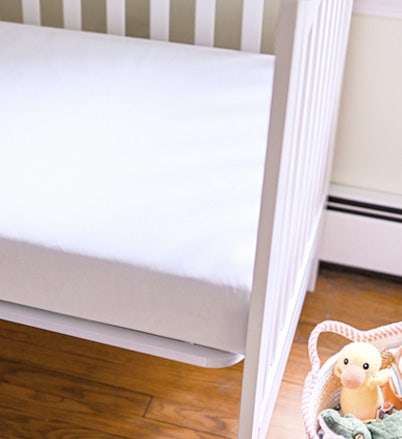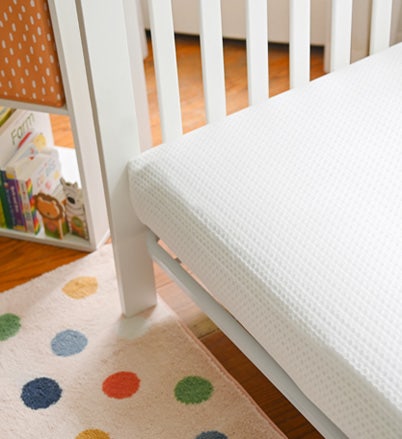Baby, Sleep and Your Mental Health
Having a new baby is a time of joy, challenge, sweetness, hard work, beauty, adjustment, happiness, sadness, hope, frustration, excitement … essentially a steep learning curve and a whole lot of mixed feelings. It’s no big surprise that this major change may impact mental health.
However your baby comes to you, through your own full-term pregnancy, premature birth, surrogacy or adoption, having a baby has a direct impact on a parent’s mental health. It is estimated that one in five women will develop some kind of mental health issues during pregnancy, the expecting period or the first year after their baby arrives. Even with adoption or fostering, parental mood disorders can arise with up to 11% of adoptive parents experiencing postadoption depression syndrome.
Mental health has a direct impact on sleep, not mention your newborn’s sleep schedule. Here’s what you should know about the relationship between babies, sleep and your mental health.
Mental Health and Pregnancy
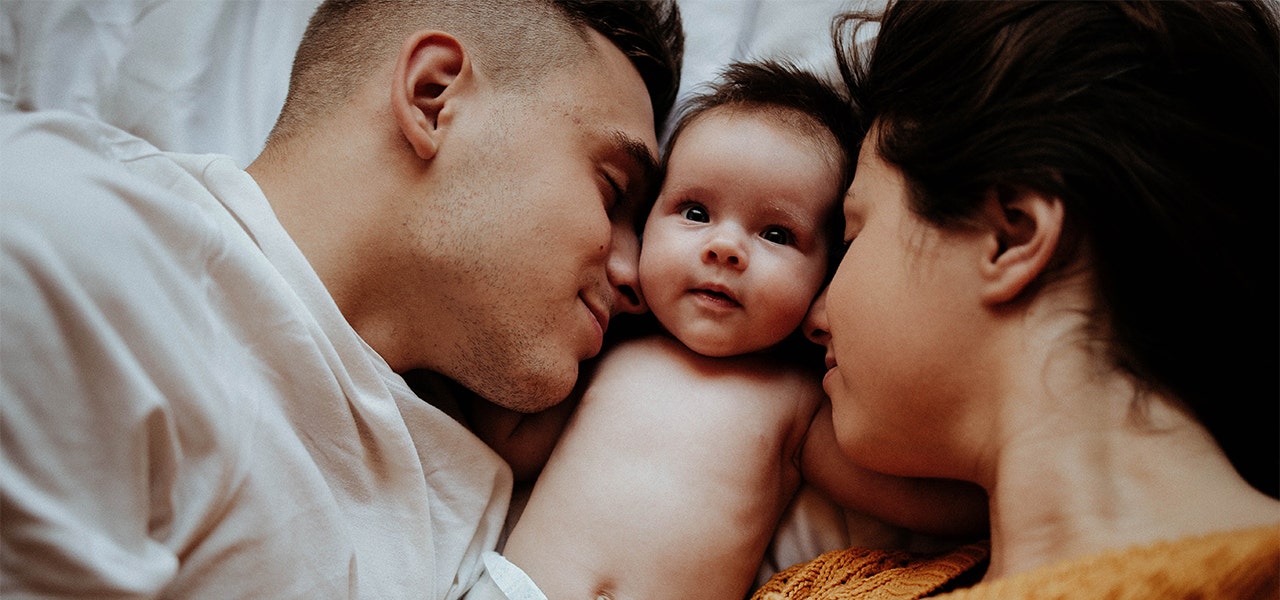

Imagine your hormones hop on a bus and go on a road trip up a bumpy mountain, getting higher and higher every day, singing camp songs, eating snacks, and having a great time just enjoying the journey. Then they reach the top – it’s been an exciting road trip, and they briefly celebrate … before abruptly driving directly off the top of the mountain and coming to a startling crash in the valley below. That’s pretty much what happens to your hormones during and after pregnancy.
Hormone levels plummet after birth – drastically so and in a very short period of time. This experience can be jarring physically, mentally and emotionally. Our hormones have a direct impact on our moods and energy levels. As if the actual physical toll of pregnancy and childbirth aren’t already a lot, this drastic shift in hormones can make it an even bumpier ride.
New Parenthood and Sleep Troubles
Any gender parent may experience post-baby mood difficulties and a contributing factor is related to your infant’s sleep.
Infant sleep makes perfect sense for an infant brain. The short, nap-style sleeps they take through the day and night support their entire system to regulate their heart rate, respiratory rate, body temperature and nutritional needs. Waking frequently to feed also protects their milk if they’re breastfed, helping to ensure a robust ongoing supply of milk. The natural sleep patterns of early infancy are part of a complete system that contributes to the safety and growth of the newborn human.
Unfortunately, that sleep pattern isn’t so great for the adult brain.
The adult brain has a very different sleep pattern than that of a newborn baby. Longer sleep cycles with a deeper stage of sleep are necessary for the adult brain to process information received during the day, heal and repair the brain and body, balance hormones, sort through emotions and experiences, and have energy for the next day. When these longer sleep cycles are disrupted and the adult brain doesn’t have the opportunity to move through the stages of sleep fully, memory, energy, focus and mood can be impaired.
No wonder parents often experience a decline in mental health after Baby!
Sleep Quality and Mental Health
We need good sleep to not only feel well physically but to feel well mentally and emotionally.
The first year after having a new baby brings a lot of transitions including with baby’s sleep development. This can mean sleep fluctuations throughout the year and sometimes beyond. The sleep of the adults caring for these small humans can take a real hit even beyond the first 6-12 weeks. Not surprisingly, so can their moods.
Having a hard time with mental health after Baby isn’t some kind of failure. It is normal and understandable during such a major time of transition, and parents need more support from their community. In fact, those who have longer maternity/paternity leave options, have access to health care and parenting resources, feel the involved social presence of family and friends, and have intentional recovery measures tend to have lower rates of post-baby mood disorders and higher satisfaction in parenting and bonding with their child. Without these measures, parents are more likely to struggle.
When parents do have difficulty with post-baby mental health, it isn’t their fault nor is it a reflection on their parenting capabilities, how much they want their child, how much they love their baby, or any other aspect of them as individuals and parents.
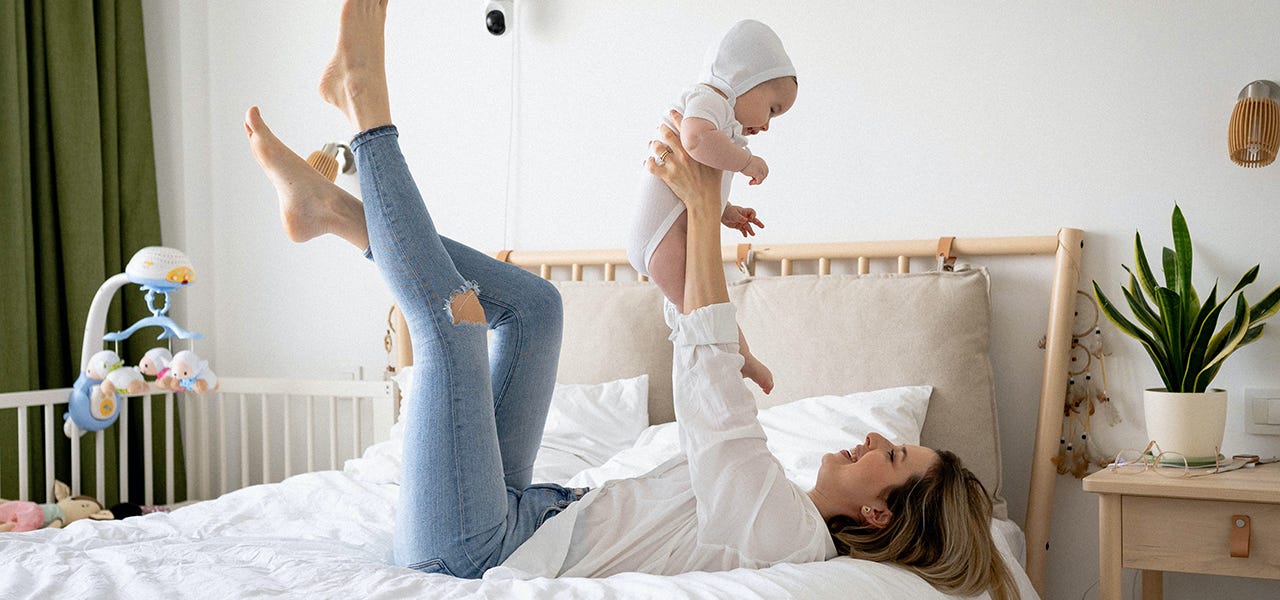

4 Ways to Care for Your Sleep and Mental Health with a New Baby
White knuckling your way through your child’s infancy and early childhood isn’t what anyone wants, and families deserve to be better supported in their overall health and wellness, including mental health, during this stage. The good news here is that there are resources and support measures that can make a difference – and there are some steps that you can take to help yourself, too.
1. Practice Proper Sleep Hygiene
Check your own sleep hygiene and make adjustments. You can’t change a newborn’s sleep pattern, and often the first year will mean disrupted sleep for you as your little one grows and develops.
You can, however, adjust your own sleep patterns by doing the best you can to have healthy sleep hygiene. That may mean going to bed earlier, being off your phone or other screens for a half hour before bed, eating foods that support sleep-boosting chemicals in the body, changing the lighting in your sleep space, and more.
2. Set Realistic Expectations
Know what is normal, and adjust your expectations. Newborns really are going to wake every three to four hours at night and this may continue well into three to four months and sometimes even beyond. Sometimes babies wake even more often and need help settling back down. This is all within normal range.
Take some time to learn about what is really normal and even what can be outside of normal if there are any special circumstances (for example, a baby born at 37 weeks is going to wake often for a longer period than a baby born at 41 weeks).
Being aware of how sleep changes after you have a baby can not only allow for setting everyone up as well as possible, but it can also help to know that this isn’t forever and isn’t some kind of parental failure – it’s just being a parent!


3. Keep Active
Exercise and get outside. I know, going for a walk in nature doesn’t actually make up for lack of sleep nor is it always going to be an instant mood lifter. However, studies do show that natural light, fresh air and physical activity help our bodies release feel good chemicals and improve sleep.
You may not get a lot of sleep with a new baby at home, and the sleep you do get may be disrupted, but if the quality of that sleep is improved it can make a difference. Any amount of physical activity and outside time is beneficial, even if you can only manage a stroll around the block or stepping outside for 30 seconds before going back in to bounce a colicky baby on an exercise ball – every little bit helps.
4. Don’t Be Afraid to Ask for Help
Share what you’re experiencing with others. Those close to you likely notice anyway and want to support you. Just talking about it can help with processing the experience and can make it less overwhelming.
Ask for help from those around you. Whether that’s figuring out a rotation schedule for someone to watch the baby so you can nap, taking turns with night-time parenting, sharing chores, etc., it truly takes a village to raise a child, and none of us should really be trying to do it all alone.
Don’t shy away from professional support, either. Speak to your primary care provider or maternal health care provider, start therapy, book an appointment with a psychiatrist, etc. There are professionals equipped to support your mental health during this time. That may include lifestyle change suggestions, nutritional guidance and possibly medications.
Remember: You’re not Alone!
If you’re tired and moody, worn out and depressed, or exhausted and anxious with a new baby, you’re not alone. It’s an all-too-common experience. Some of it is out of our control and just biology, some of it is a reflection of our societal priorities, and some of it can be addressed with little changes you make.
It really is hard. For some, it’s the absolute hardest part of having children. There are a wide range of experiences with this, and don’t judge yourself harshly if yours seems more difficult than others. You’re a good parent who loves your child deeply and is learning along with them through a time of intense transition. Wanting more sleep and a break is understandable.
You are the right person to be figuring this all out with your baby. They are lucky to have you, tired, dark under-eye circles, weepy moments and all.

 Baby
Baby
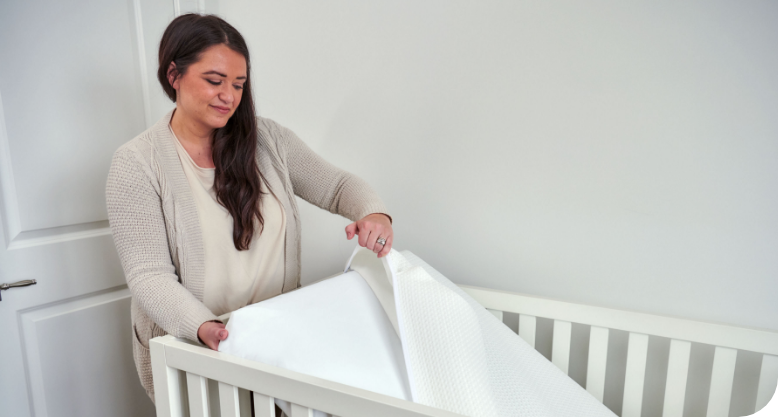
 Kids
Kids
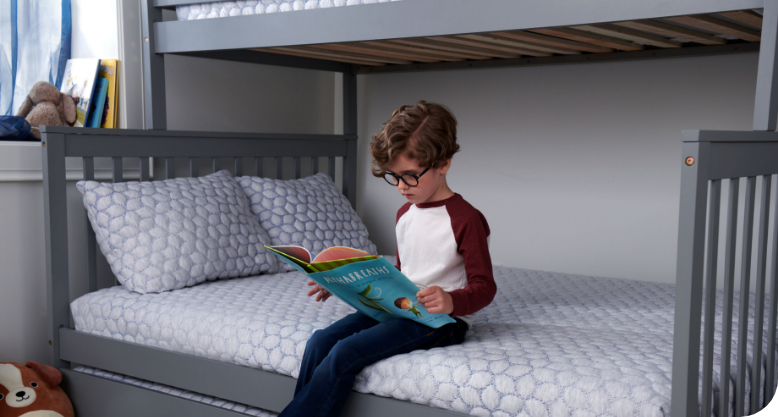
 Learn
Learn
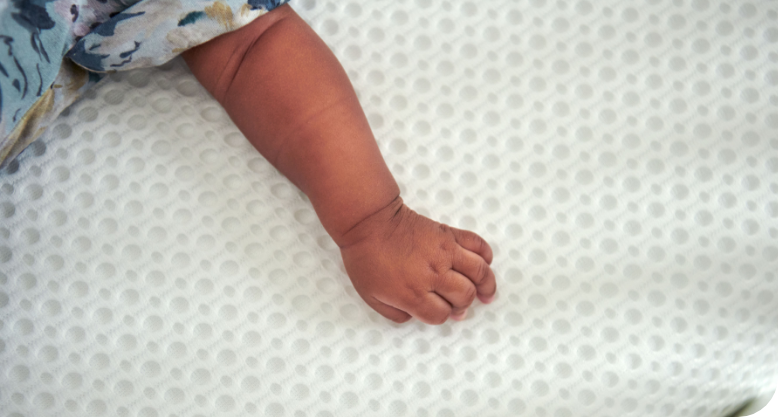
 FIND A STORE
FIND A STORE CONTACT
CONTACT
